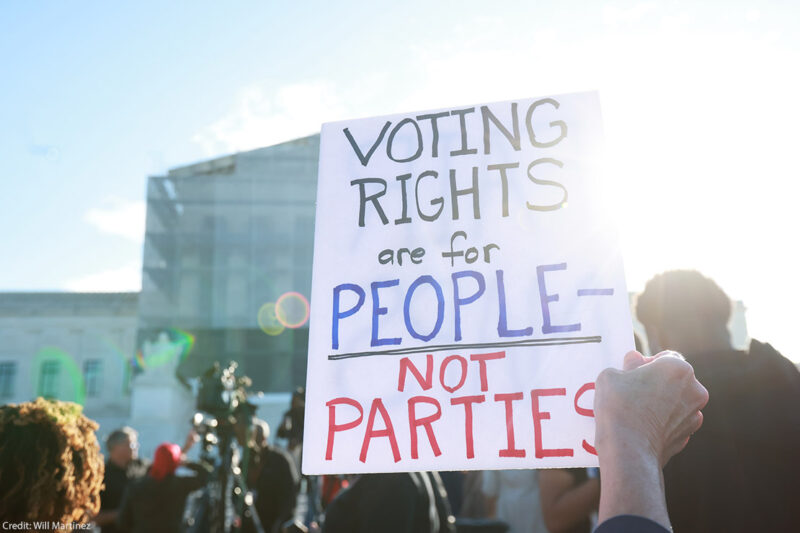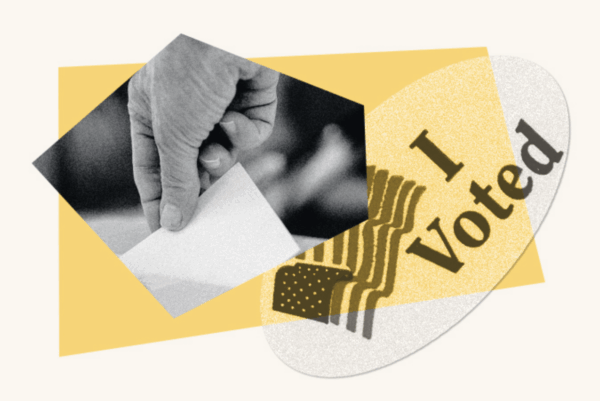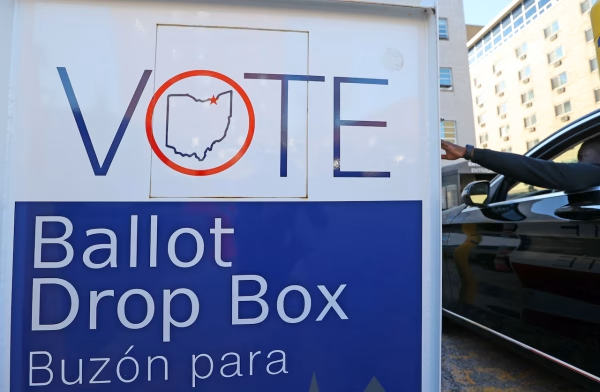Your Questions Answered: How to Vote Amid Trump's Attacks on Elections


Even though 2025 is an off-year for federal elections, the fight for voting rights is intensifying. President Donald Trump and his supporters have pushed sweeping executive actions and policy shifts that threaten to limit access to the ballot. From trying to undermine mail-in voting to ongoing abuses of power that include unjustified troop deployments to American cities, these measures are sparking confusion and concern among voters across the country.
This year, though there is only one special federal congressional election, there are plenty of state and local races happening across the country. Trump’s abuses against voting rights during this time are unprecedented. The Constitution is clear: the president has no authority to set the rules for our elections.
Trump signed an executive order in March that seeks to create more restrictive voter registration requirements and other barriers. Key provisions included requiring documentary proof of U.S. citizenship on the federal voter registration form, trying to forbid states from counting mail-in ballots received after Election Day, and threatening to withhold federal election funds from states that did not comply.

Voting Rights
Voting Rights

Voting Rights
Voting Rights
This is not about election integrity. It is a shameless attempt to strip communities of their right to participate in our democracy. That’s why a coalition of civil and voting rights organizations filed a lawsuit to challenge aspects of President Trump’s unlawful executive order. The court temporarily blocked parts of Trump’s order in April, such as requiring voters to provide documents to prove their citizenship on the federal voter registration form. The court made the block on this “show-me-your-papers” requirement permanent at the end of October.
It can be easy to get confused by all the changes Trump is pushing for and whether they are actually being implemented. As part of our ‚ÄúYour Questions Answered‚Äù series, we brought four of the most pressing questions we‚Äôve received about voting rights directly to ∫Ï–” ”∆µ experts. Here‚Äôs what you need to know to navigate this year‚Äôs elections, exercise your constitutional rights, and push back against efforts to subvert American democracy.
I live in a city where Trump has deployed the National Guard or with a heightened presence of federal immigration agents. What should I do if I see the National Guard or federal agents at or near my polling site?
Every eligible citizen has the right to cast a ballot freely, fairly, and accessibly, without fear of intimidation. It is illegal and a federal crime for anyone to intimidate voters. That includes federal, state, and local officials. Voter intimidation is also prohibited under state law in most states.
Make your plan now, and consider voting by mail and using drop boxes if there is sufficient time and you can under state law. Consider voting as early as possible during the early voting period, if available in your state. Report intimidation to the Election Protection Hotline at 1-866-OUR-VOTE or 1-888-VE-Y-VOTA (en Español/English), 888-API-VOTE (Asian languages/English), 844-YALLA-US (Arabic/English). . Their offices will be open on Election Day.
‚ÄîXavier Persad, Senior Policy Counsel, ∫Ï–” ”∆µ National Political Advocacy Division
I heard some politicians want to get rid of mail-in voting. Is voting by mail still legal?
Voting by mail as permitted by the laws of your state is legal. In his sweeping executive order, Trump tried to bully states into not counting ballots properly received after Election Day under state law by threatening to withhold federal funding. A federal court has temporarily blocked this part of the executive order.
Trump’s effort to target mail-in voting is a blatant overreach, intruding on states’ constitutional authority to set the rules for elections. It threatens to disenfranchise tens of millions of eligible voters and would no doubt disproportionately impact historically-excluded communities, including voters of color, naturalized citizens, people with disabilities, and the elderly, by pushing unnecessary barriers to the fundamental right to vote.
‚ÄîSophia Lin Lakin, Director, ∫Ï–” ”∆µ Voting Rights Project
Do I need to bring extra documents to vote, like a passport or birth certificate?
While some states require some form of voter ID, you do not need to bring extra items that prove your citizenship unless you have received a letter from your election officials specifically asking for those documents.
States also already have extensive processes to make sure only eligible voters register. And federal law already requires that only eligible citizens vote in federal elections; in fact it is a federal crime and deportable offense for noncitizens to vote in federal elections and a crime in every state for noncitizens to vote in state elections.
More than 21 million voting-age citizens across the political spectrum either don’t have or lack easy access to documents like passports and birth certificates, which is why President Trump’s attempt to add the unnecessary burden of producing these documents to register on the federal form disproportionately affects voters of color, naturalized citizens, young and elderly voters, and voters with low incomes.
‚ÄîSarah Brannon, Deputy Director, ∫Ï–” ”∆µ Voting Rights Project
Why do I keep hearing rumors about widespread noncitizen voting?
These claims are absolutely false and have been disproven time and time again. There are many verifications and checks in place that ensure that only eligible Americans vote. And let's be clear: this type of misinformation is part of a broad strategy of anti-voter extremists to try to distract us from the real issues at stake in this election, and attempt to sow distrust in the system and undermine election results should they dislike them. These falsehoods are grounded in xenophobia and attempts to suppress voting.
In the United States , we the voters pick our leaders, our leaders don't get to pick their voters. Voting gives us a say in the issues that impact our communities, and we will turn out in record numbers for our freedoms, our families, and our future. Our voices will be heard and our votes will be counted. And the will of the people will be honored.
‚ÄîXavier Persad, Senior Policy Counsel, ∫Ï–” ”∆µ National Political Advocacy Division


